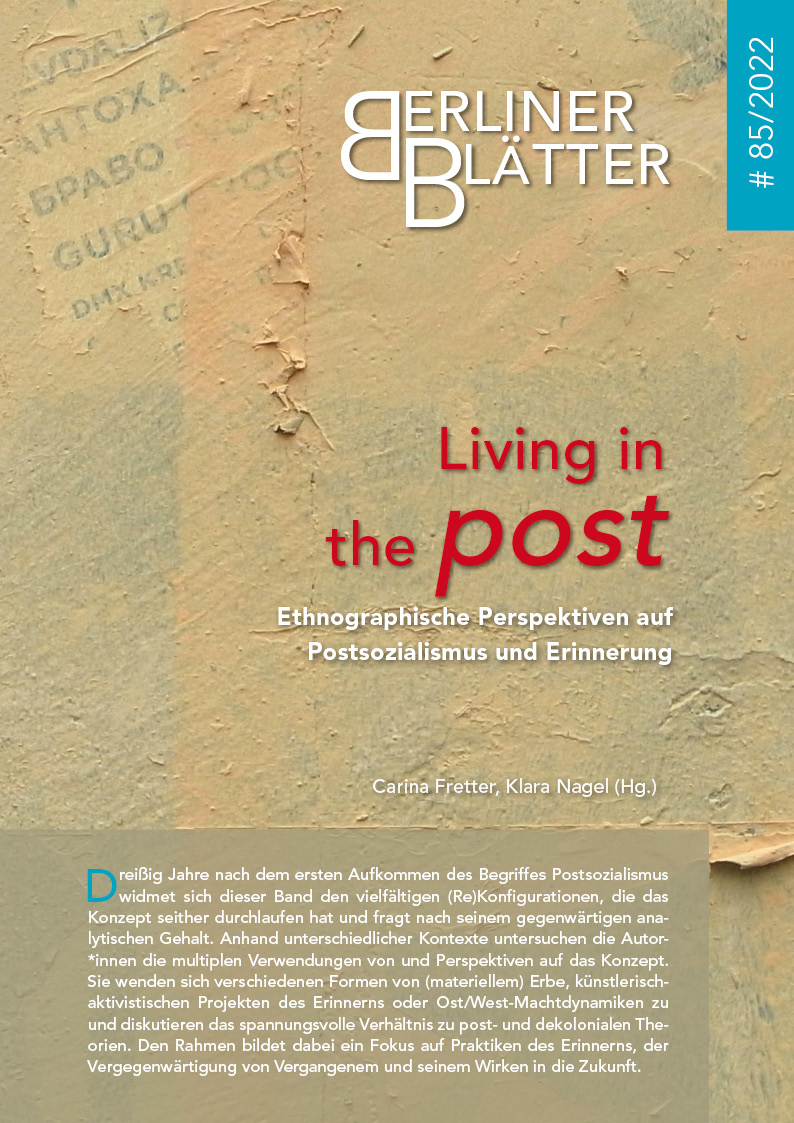Spaces of Possibility in Transition
A Post-Socialist View on the Feminist Potential of the Constitutional Discussion of the Wende Era
DOI:
https://doi.org/10.18452/23998Keywords:
Postsocialism, Reunification, Feminism, Constitution, Independent Women's AssociationAbstract
In the hegemonic narrative of the Wende era, many experiences remain untold. In our article, we show which feminist stories can become visible through a post-socialist perspective on the Wende era. Thereby we engage with the constitutional discussion of the Wende era, in particular the work on the draft constitutions of the Central Round Table of the GDR and the Board of Trustees for a Democratically Constituted Federation of German States. We examine how the Independent Women’s Association, a central women’s policy initiative of the Wende era, that promotes women’s interests, introduced feminist demands into the constitutional discussion and how these demands were reflected in the specific legislative text. With our work we go beyond the mere revealing of power relations and the space of possibilities in the past: by highlighting how the women tried to use law to anchor feminist demands in society as a whole, we open up spaces of possibilities in the present and for the future.
Downloads
Published
How to Cite
Issue
Section
License
Copyright (c) 2022 Berliner Blätter

This work is licensed under a Creative Commons Attribution-NonCommercial-ShareAlike 4.0 International License.





